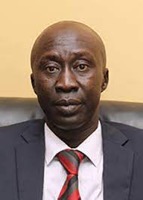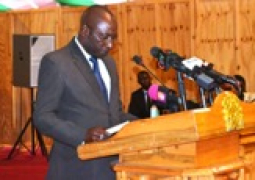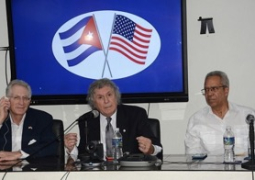
“We want to reassure Gambians that the asset is not put as collateral in any debt financing towards the investment of the port,” Jobarteh stressed.
“The assets remain the property of the Government of The Gambia and the GPA.”
He disclosed that GPA had written formally to Albayrak to remind them of these contractual limits after learning that the company had applied for a loan from Zenith Bank PLC in Turkey.
According to him, the letter now circulating on social media was not a leak, but a sensitive internal reminder clarifying what Albayrak can and cannot do under the concession agreement.
Jobarteh clarified that Albayrak’s loan application is being processed independently and that GPA and the Gambian government are not guarantors.
“The sponsor can take a loan to finance the investment, but they cannot use the port as collateral because the fixed assets still belong to us,” he said.
“There are safeguards in the concession agreement to ensure that no government obligation or exposure arises.”
He added that GPA declined to sign a consent letter sought by the local Zenith Bank branch because the terms appeared to overstep these boundaries.
While acknowledging public concerns, the GPA boss argued that the involvement of an international bank like Zenith is actually a positive sign for The Gambia’s investment credibility.
“If an international bank finances a private project in The Gambia, it improves the country’s credit rating and shows that even in the unlikely event of bankruptcy, the government is not exposed,” he explained.
He also highlighted that Albayrak has already begun mobilising funds, with part of its committed €20 million investment being deposited locally, and a portion of port revenues being dedicated to a special escrow account for infrastructure upgrades.
Responding to a text message from a concerned listener who questioned why The Gambia did not itself take such loans instead of relying on foreign companies, Jobarteh maintained that sovereignty remains intact.
“The assets are not sold; they’re not mortgaged. It’s only a right of use under a concession,” he stated.
“That’s why we wrote to Zenith Bank — to make it clear the port cannot be used as collateral. The port still belongs to the people of The Gambia.”
He added that the concession model, while controversial, has brought efficiency, expertise and reduced business costs at the port with benefits The Gambia could not easily have derived through traditional government financing.
On the issue of dock workers’ wages, Jobarteh admitted that the transition under Alport Banjul has caused pay disparities, but said GPA is mediating to restore fair earnings.
“We’ve now agreed on a move rate of D1,400, which brings workers back to their previous wage levels,” he revealed, noting that discussions with Albayrak have been “constructive and ongoing.”
Jobarteh also provided updates on the much-anticipated Sanyang Deep Seaport, revealing that progress has been delayed but remains on track.
“Government is finalizing its obligations, including land leases and environmental assessments,” he said.
“We expect physical work to start by the first quarter of next year.”
He noted that while the project has faced delays due to weather and technical challenges, new equipment had been deployed and geotechnical investigations are ongoing.




